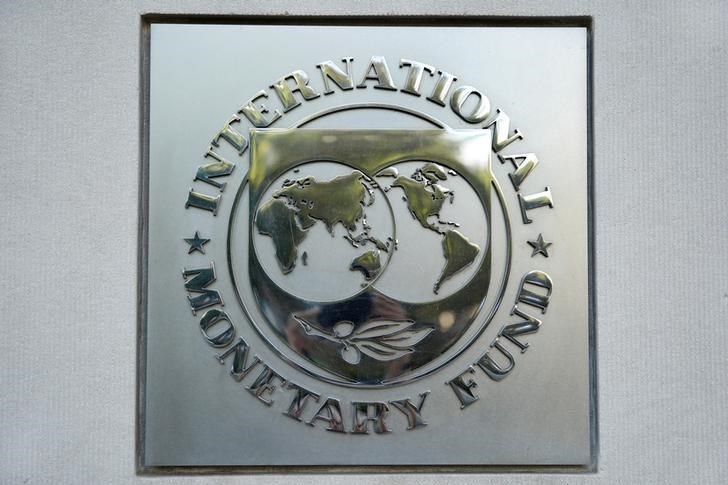 © Reuters. International Monetary Fund logo is seen in Washington
© Reuters. International Monetary Fund logo is seen in WashingtonBy Paul Carsten
LAGOS (Reuters) – The International Monetary Fund projects that Nigeria will “muddle through” with its economic policies in the medium term, according to a report seen by Reuters on Wednesday.
Although Nigeria recovered from recession in 2017, growth has largely been fueled by a bounce-back in oil production and prices, raising fears that Africa’s largest economy will settle back into depending on crude rather than seeking to diversify.
The IMF said in its annual Article IV review of Nigeria’s economy that the outlook for growth has improved but remains challenging. It said “comprehensive and coherent” economic policies “remain urgent and must not be delayed by approaching elections and recovering oil prices”.
While the broader economy is slowly exiting recession, people are getting poorer as real gross domestic product per capita is falling, the Fund added.
“Higher oil prices would support a recovery in 2018 but a ‘muddle-through’ outlook is projected for the medium term under current policies, with fiscal dominance and structural constraints leading to continuing falls in real GDP per capita,” the IMF said.
Last year, the lender’s less-than-rosy take on Nigeria’s economy influenced a decision by the World Bank and African Development Bank to halt discussions for budget support loans of at least $1.4 billion.
In the report, it identified risks to growth including additional delays to implementing policies and reforms ahead of 2019 elections, security tensions, and oil prices, a fall in which could see capital flows reversed.
The lender repeated its call, which it has made for more than a year, for Nigeria to simplify its complex foreign exchange system, which has left large gaps between official rates and various windows that certain groups can use to get other rates.
“Moving toward a unified exchange rate should be pursued as soon as possible,” the IMF said.
An IMF spokeswoman declined to comment on the report, but said a statement would be issued after the lender’s board met to discuss the assessment on Friday.
A Nigerian finance ministry spokeswoman did not immediately respond to a phone call and email requesting comment.
Fusion Media or anyone involved with Fusion Media will not accept any liability for loss or damage as a result of reliance on the information including data, quotes, charts and buy/sell signals contained within this website. Please be fully informed regarding the risks and costs associated with trading the financial markets, it is one of the riskiest investment forms possible.
Source: Investing.com



























